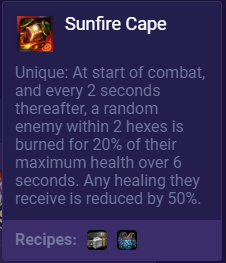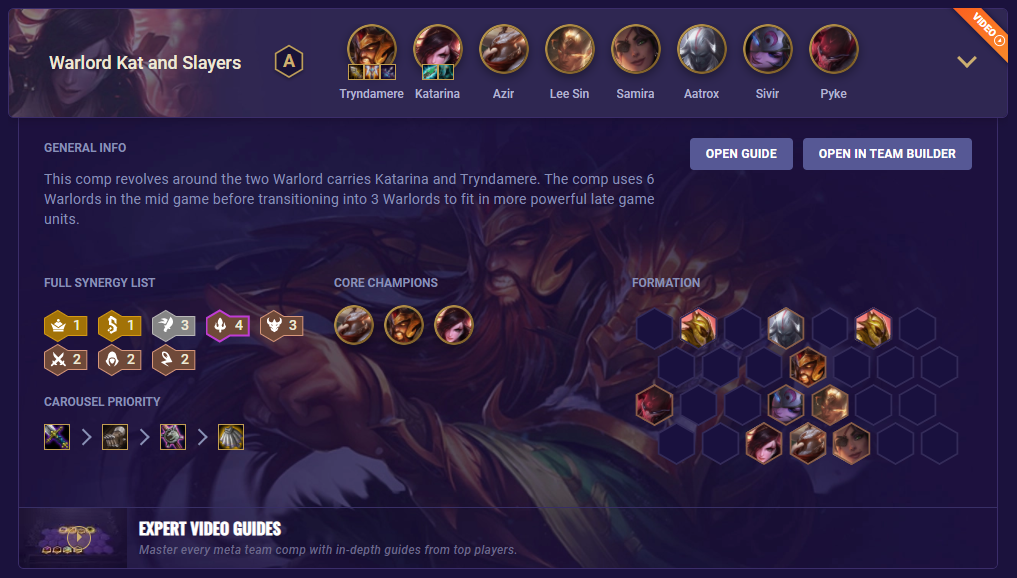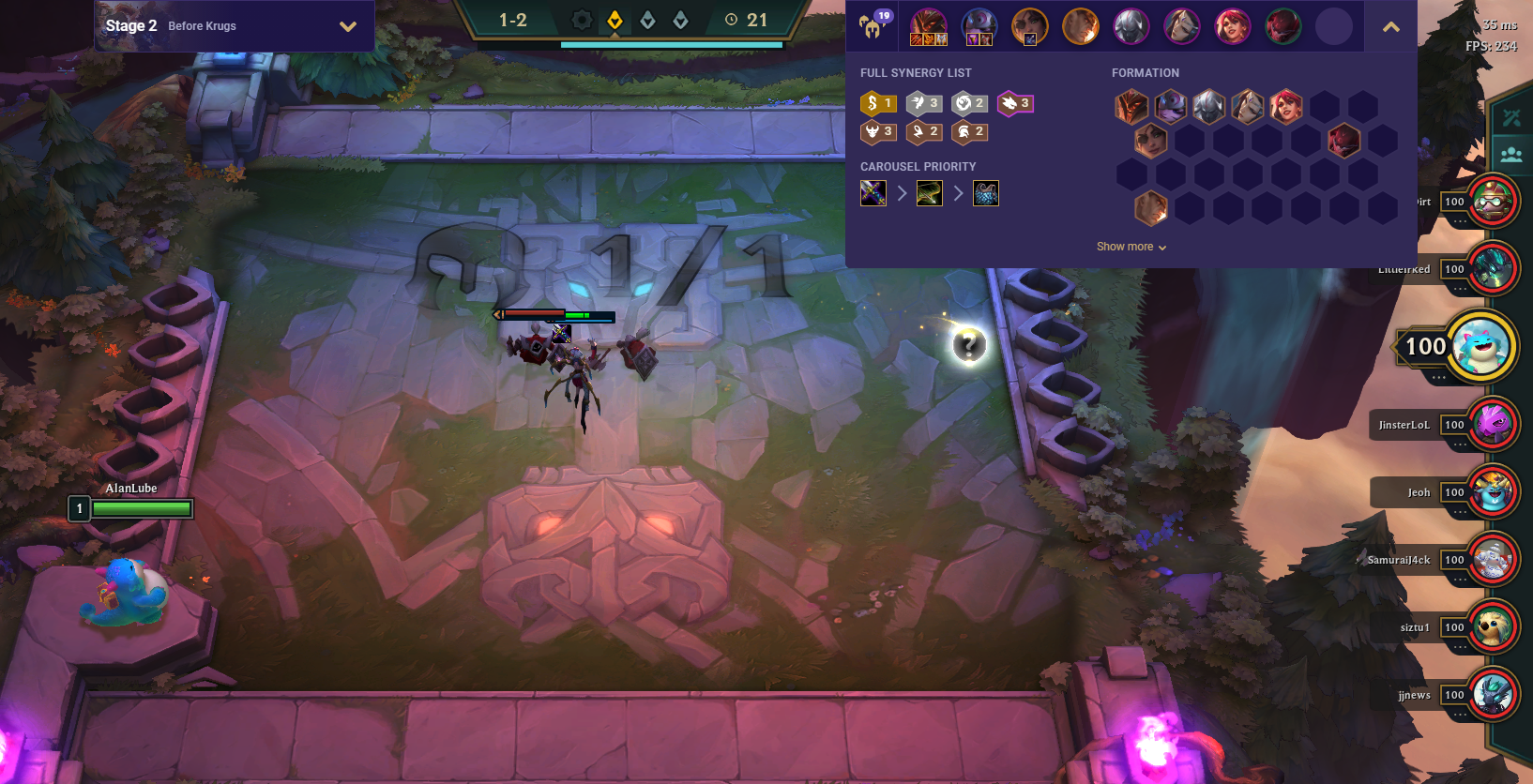How to Avoid Tunnel Vision in Teamfight Tactics
Playing a game of TFT comes with many twists and turns. You may start out the game with the perfect units for a specific comp.
Then in the late game, you won’t hit any of your high-cost units that you need.
Conversely, you can start out the game with absolutely no direction. All of a sudden, the perfect carries and units start filling up the shop.
Picking the right comp to play in a game is crucial to having success. Unfortunately, or fortunately (depending on who you talk to), forcing the same comp every game is much more difficult than it was in previous sets.
With the Chosen mechanic in the game, players are encouraged to play around what they find to maximize their chances of success.
In this article, I’ll be going over how I personally pick what comp to play, how to use your Chosen unit effectively, and how to remain consistent over multiple games.
Items and Limiting Factors
Picking a comp can be very simple, but it can also be a tough decision. The first requirement I look to is items.
If I want to play a certain comp, I need to know if I can hit the required items for the comp.
Item Requirements

For example, if I want to play Spirit Slayers, I know that I need to build Rapid Firecannon. I can still try to go for the comp without RFC, but I may regret that decision if I am unable to build it by Stage 5.
It is also important to know which items are required for the comp, and which items can be replaced with others.
In order to play it safe, you should ensure that you have a few of your core item components by Stage 3. If I commit to this comp with no Recurve Bow, I am taking on too much risk.
It’s much easier to pivot into a different comp than to rely on hitting a specific item.
Flexible Items
If you struggle with deciding on a comp based on your items, you may find yourself saving your items for too long.
This will decrease your team’s strength and hurt you the longer you take to decide.
As such, there are always a few powerful items that you can build that fit into many comps.

Sunfire Cape is the best example of a flexible item. This item is very strong early on and can be used in any comp.
While we only have it as a core item in Elderwood comps, the reality is that you can build this on any team comp. This item is great on units like Pyke, Jarvan, Rakan, Assassins, or even Shen.
Sunfire Cape is the prime example of an early game item slam that doesn’t make you committed to any specific comp.
If you can use this item to build a win streak, you will have a much easier time transitioning into a comp with more health and gold.
Using Chosen Effectively
One of the biggest mistakes players make when it comes to the Chosen mechanic is not making the most out of it.
Chosen is a very strong mechanic that you can use to your advantage throughout the game. It’s not something you pick up early and forget about.
Here are some things to keep in mind to make the most of the Chosen mechanic.
Early Game Chosen Pickups
One of the best ways to use Chosen is to pick up an early unit to try and win streak. You instantly get a 2-star unit with a bonus trait.
The difference early game between a team with Chosen and a team without is glaring. You can high roll and find lots of upgrades, but players who pick up an early Chosen will be much stronger on average than players who hold out.

For instance, if I want to play a game with 6 Elderwood, I might pick up an early Chosen Lulu or Maokai with Chosen Elderwood.
This sets me up to be in a strong position to play this comp, but there are two mistakes players make in this situation.
- By picking an early Chosen, you can tunnel vision into going for one specific comp. If you are unable to hit Xayah or Aurelion Sol, you will struggle even if you had a strong early game with a Chosen Elderwood.
- You are able to secure the units you need for the team comp, but you hold onto your early game Chosen. Even if you have a Chosen Elderwood Lulu, you would gain so much more if you were able to get a Chosen Aurelion Sol or Xayah.
So how do you fix this problem?
Selling your Chosen
The simple answer is to not commit to a team comp based on what Chosen unit you find early on. The key here is the phrase “early on.”
It may sound counter-intuitive, but a lot of the strongest team comps this set don’t rely on any one specific Chosen trait or unit. Instead, they have many options or sometimes don’t require a Chosen unit at all.

Let’s take a look at this Warlord comp. Having a Chosen Warlord helps you out during the mid game when you transition into 6 Warlords.
However, the final team comp does not rely on having that Chosen Warlord. If I find a Chosen Warlord Garen early game, I can build around that to try and build a strong team and win streak.
However, I can still go for this comp without a Chosen Warlord. Maybe I find a Chosen Keeper Jarvan, or a Chosen Assassin Pyke, or a Chosen Vanguard Garen.
All of these options are solid units that you can use but don’t tie you down to a specific comp. It will be easier to transition into certain comps over others, but the idea is to remember that you have options.
Don’t Commit too Early
The main point of this section is to not commit to a comp simply because you found a Chosen unit early and want to settle. For some slow roll comps like Diana or Yasuo, this is a legitimate tactic, but what I’m saying applies to comps that level and roll normally.

You should try to pick up early game Chosen units and build the strongest team you can around them. Once you hit a major level like 7 or 8, sell off your Chosen in order to fish for a better one. You might find an ideal carry like Olaf or Kayle and decide to build around that.
The game rewards you for being able to make decisions on the fly and adapt to your shop. By committing to a comp based on the first Chosen you see, you are setting yourself up for inconsistency.
Remaining Consistent
When trying to be consistent with your games, you need to remember one very important fact. No matter how good you are, you cannot top 4 every single game you play.
There will be games where you complete your comp, but other players just high roll harder. There will be games where you do everything right, but the best you can manage is 6th. It’s a part of the game.
TFT as a game has a lot of RNG variables. The challenge as a player is to navigate those variables into the best possible result.
How do you do that? I believe that for Set 4 and 4.5, the biggest skill you can learn is how to play flexibly. This means learning how to decide which comp to play, how to efficiently use your Chosen unit, etc. All the things I covered above.
Final Thoughts
If you’re still newer to the game or still consider yourself a beginner, it can be challenging to navigate all these variables. It becomes even harder when you learn that you have so many different team comp options you can choose from. The best advice I can give is to take it one step at a time.
Try out one comp one game. Ask yourself what worked or what didn’t work. Try out another comp, repeat, repeat.
Over time, you will slowly gain knowledge about what units transition into what comps. What items you can build early that fit into multiple options, etc.
It’s not easy to play flexibly and know what comp to play, and it’s much easier to just pick a comp and try it out.
However, if you really want to improve at the game, you need to take the next step and optimize every decision you make during the game.

If you need help learning all of the different team compositions and variations, be sure to check out our TFT overlay for an in-game helper. This will make the process of learning multiple comps go by much faster.
Thanks for reading! To see all of the best TFT comps you can target while you play, download our free TFT overlay!
To learn about the latest TFT Set with newly released game mechanics hextech augments, head to our all-in-one Teamfight Tactics Set 6 reveal page that covers all champions, synergies, and more!
Subscribe to our newsletter:
Don’t miss out on all of the latest TFT content!
 Download APP
Download APP Collapse
Collapse